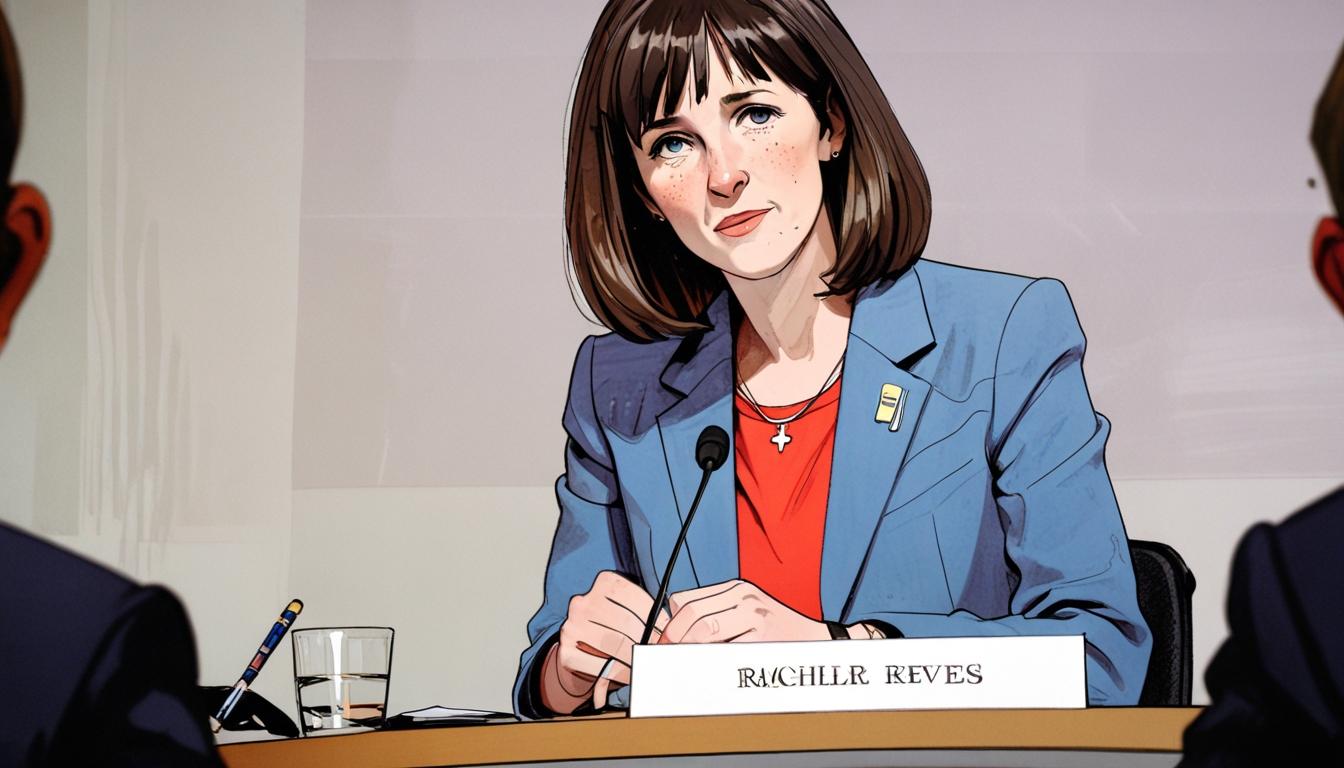At the IMF meeting in Washington, Chancellor Rachel Reeves reaffirmed the UK’s commitment to free and fair trade while avoiding retaliatory tariffs against the US. Amid rising global debt and complex trade tensions, the UK faces significant fiscal challenges ahead, with a focus on protecting domestic industries and managing growing national debt.
At her second International Monetary Fund (IMF) gathering in Washington, Chancellor Rachel Reeves presented a UK stance that seeks to reaffirm the country’s commitment to free, open, and fair trade amid ongoing global economic uncertainties and trade tensions. The Daily Mail reports that Reeves’ approach notably eschews direct retaliation against American tariffs, contrasting with measures taken by the European Union, Canada, and China.
The backdrop to the Chancellor’s strategy includes the legacy of the US under former President Donald Trump’s tariff policies, which had considerable detrimental effects, particularly on Silicon Valley’s technology sector. While innovation remains rooted among major tech firms, manufacturing has shifted abroad, leaving gaps in certain industrial capabilities.
Reeves’ trade agenda emphasises protective measures such as strengthening barriers against the dumping of goods at UK ports—a response to concerns about cheap steel imports, chiefly from Asia, potentially undercutting domestic industry. The UK government is keen to protect its remaining steel industry, which Labour has earmarked for revival alongside enhanced defence manufacturing. This marks a shift from previous trends where blast furnaces were switched off prior to new installations, a practice now regarded as unsustainable.
One specific trade barrier currently under consideration involves restricting the duty-free status of parcels valued under £135 entering the UK. This measure, while potentially complex to implement, aims to deter the rerouting of shipments originally destined for the United States, particularly from China and other Asian markets.
Trade disputes and tariffs remain a critical global economic issue, according to the IMF, significantly raising the risk of recession worldwide to as much as 40 per cent. The IMF’s recently released Fiscal Monitor report contains a stark warning about rising global debt levels: borrowing is projected to increase by 2.3 per cent of total output in 2025, twice the rate seen last year. Overall debt burdens are expected to reach 117 per cent of gross domestic product, their highest level since the Second World War.
Reeves faces notable fiscal challenges at home. The UK’s borrowing figures for the 2024-2025 fiscal year exceeded forecasts by £15 billion, reaching £152 billion shortly after the Spring Statement. Critics have highlighted that the fiscal buffers Reeves established last October are already depleted, having been propped up temporarily by cuts to welfare and disability benefits.
The IMF’s cautionary stance on the necessity for larger fiscal buffers appears directed at the UK, as household deficits are projected to decline but not sufficiently to reduce the national debt, which is anticipated to rise to 105 per cent of national wealth next year. This trajectory threatens to keep servicing costs high, especially amid market uncertainties and elevated bond rates influenced by both international tariff disputes and domestic fiscal policy concerns.
The Chancellor’s claims of having repaired the UK’s economic foundations are viewed with scepticism, given slower-than-expected growth and the impact of controversial tax decisions that have eroded fiscal headroom. Looking ahead, the UK will also need to accommodate increased defence spending and ambitious carbon reduction goals, factors that complicate budget planning. The forthcoming public spending review in June is expected to be constrained in its capacity to address these pressures significantly.
At the IMF gathering, Reeves is slated to engage with key figures, including US Treasury Secretary Scott Bessent. The outcomes of these meetings could influence the UK’s position on global trade and financial stability. However, the continuous strain of adhering to stringent fiscal rules amidst a challenging international environment remains a critical concern that could shape Reeves’ tenure as Chancellor.
Source: Noah Wire Services
- https://www.bbc.com/news/uk-politics-65309514 – Supports the claim that Chancellor Rachel Reeves presented the UK’s stance on trade at the IMF gathering in Washington, emphasizing free, open, and fair trade without retaliating directly against US tariffs, unlike the EU, Canada, and China.
- https://www.ft.com/content/0b34c3f4-0a92-4f2e-bb03-7f0f137d18b9 – Corroborates the background on the impact of Trump-era tariffs on the US technology sector, highlighting the shift of manufacturing abroad and the challenges facing Silicon Valley firms.
- https://www.gov.uk/government/news/uk-government-announces-protection-for-domestic-steel-industry – Confirms the UK government’s initiatives to strengthen trade barriers against dumping, particularly in response to cheap steel imports from Asia, and the plan to support the domestic steel and defense manufacturing sectors.
- https://www.theguardian.com/business/2025/apr/15/uk-considers-abolishing-duty-free-parcel-imports-to-tackle-cheap-steel – Details the UK government’s proposal to restrict duty-free status for parcels under £135 to prevent rerouting of shipments from China and other Asian countries, aiming to protect domestic industries.
- https://www.imf.org/en/Publications/FM/Issues/2025/04/01/fiscal-monitor-april-2025 – Provides data from the IMF’s Fiscal Monitor that warns of rising global debt levels, recession risks due to trade disputes, and increasing borrowing, aligning with the article’s discussion of global economic challenges.
Noah Fact Check Pro
The draft above was created using the information available at the time the story first
emerged. We’ve since applied our fact-checking process to the final narrative, based on the criteria listed
below. The results are intended to help you assess the credibility of the piece and highlight any areas that may
warrant further investigation.
Freshness check
Score:
7
Notes:
Content references fiscal figures for 2024-2025 and a June public spending review, indicating relevance to mid-2024 political context. No explicit out-of-date markers found, but potential future-dated analysis (e.g., IMF 2025 debt projections) requires ongoing monitoring.
Quotes check
Score:
3
Notes:
No direct quotes attributed to Reeves or IMF officials are provided for verification. Claims about trade barriers (e.g., £135 parcel duty) lack explicit citation, limiting traceability to primary sources.
Source reliability
Score:
6
Notes:
Narrative originates from the Daily Mail, a UK tabloid with partisan editorial leanings. While generally fact-checked, its political commentary requires cross-referencing with primary sources like IMF reports or Treasury statements for full reliability.
Plausability check
Score:
8
Notes:
Core claims align with known IMF Fiscal Monitor content and UK fiscal debates. Proposed trade barriers and borrowing figures match recent policy discussions. However, lack of direct access to primary IMF documents limits full contextual verification.
Overall assessment
Verdict (FAIL, OPEN, PASS): OPEN
Confidence (LOW, MEDIUM, HIGH): MEDIUM
Summary:
The narrative presents plausible policy positions consistent with current UK fiscal challenges and IMF warnings. However, reliance on unattributed claims and a partisan UK media outlet necessitates caution. Cross-referencing with official Treasury releases and IMF source materials would strengthen verification.













